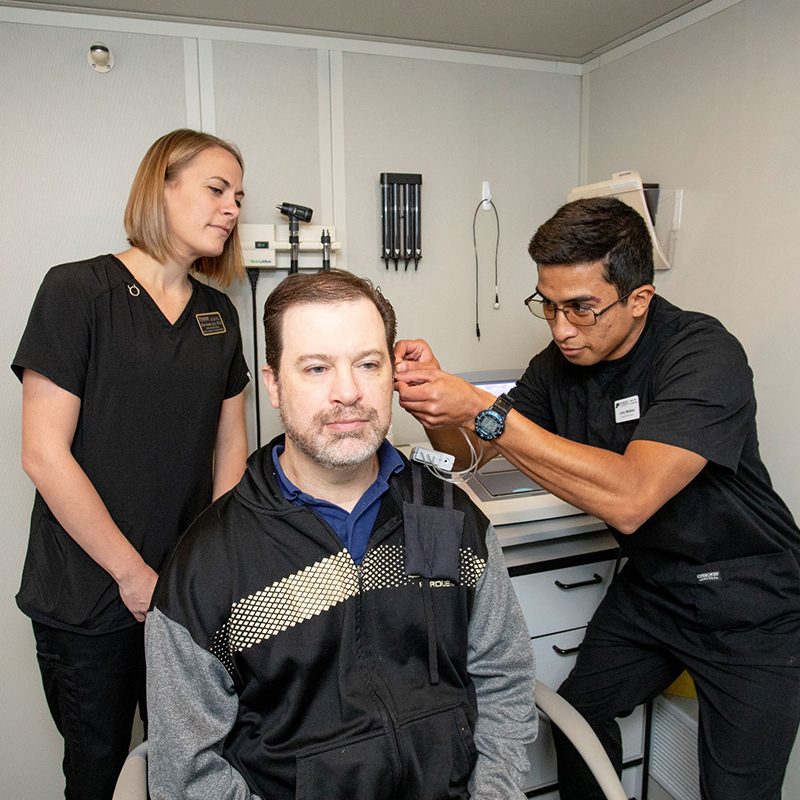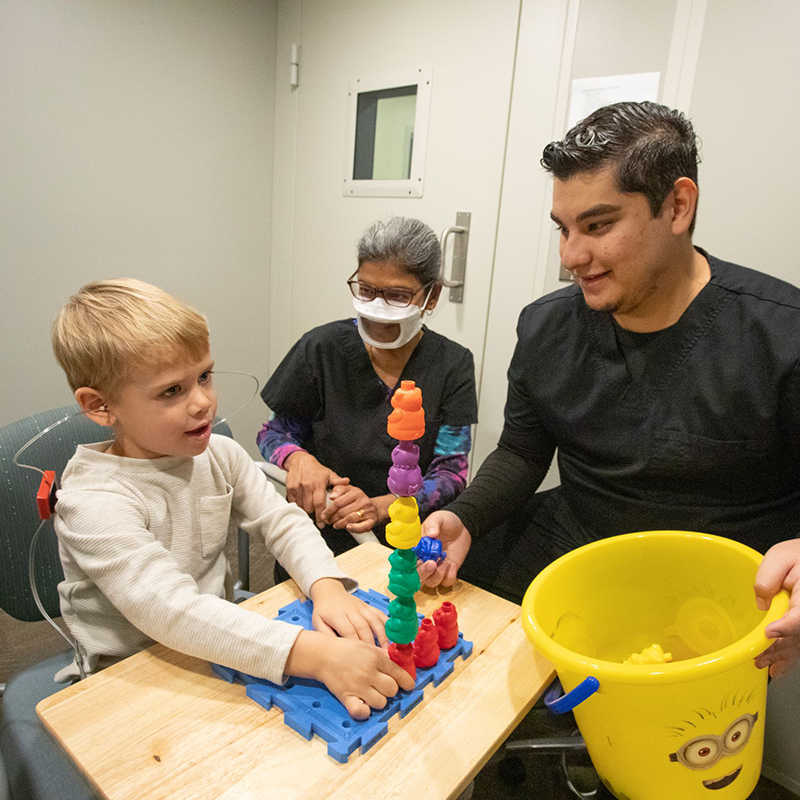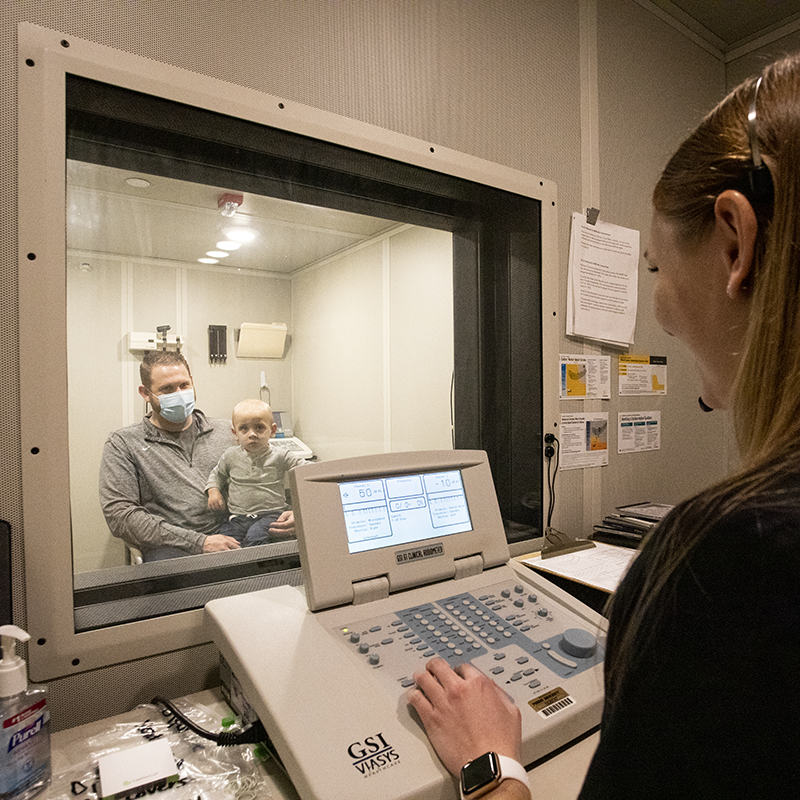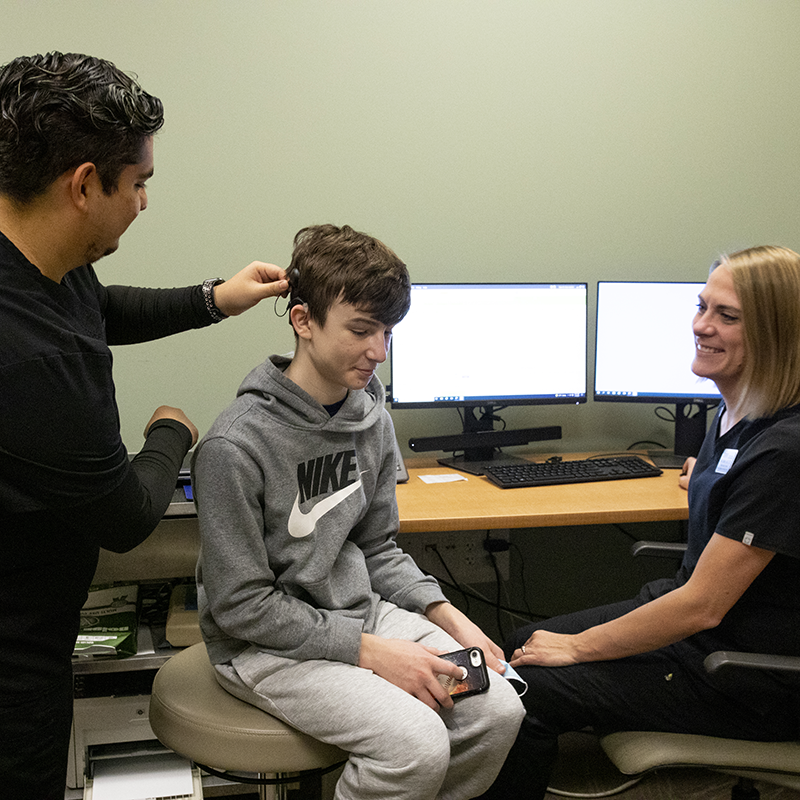Audiology
Adult Hearing Diagnostics Clinic
Comprehensive diagnostic hearing evaluations are provided for adults with hearing difficulties. Evaluations include:
- A thorough case history to understand each individual’s communication needs and medical history
- Diagnostic testing to accurately identify ear and hearing disorders
- Counseling regarding the assessment results
- Appropriate referrals as needed
- Collaborative creation of an individualized treatment plan to improve communication if needed
Specialized assessment techniques are available to evaluate ringing (tinnitus) in the ears and to monitor hearing for individuals undergoing certain treatments that may affect hearing such as chemotherapy.
Audiologists/Clinical Educators

Adult Hearing Loss Intervention Clinic
Services provided include the selection, evaluation, fitting, and ongoing monitoring of amplification devices. Amplification options are recommended based on a thorough review of each individual’s communication needs and goals, in conjunction with accurate diagnostic evaluation of hearing. Device fittings include hearing aids, Bluetooth accessories (e.g., remote microphones, TV devices), hearing assistive technology (e.g., FM systems), and bone-anchored hearing devices. Extensive counseling is provided regarding device use and management to obtain maximum benefit.
Audiologists/Clinical Educators
Aural Rehabilitation for Children
Assessment and intervention services are provided in conjunction with speech-language pathologists for individuals with hearing loss from infancy through adulthood. Individual and/or group intervention focuses on optimizing amplification with hearing aids and/or cochlear implants and other assistive technology. In addition, comprehensive treatment to improve or develop auditory perception and comprehension skills, vocabulary, and expressive communication skills, as well as effective participation in a variety of interactive situations is provided.
Clinical Educators

Cochlear Implant Clinic
Comprehensive services related to cochlear implants are provided for pediatric and adult patients, including evaluation for cochlear implant candidacy, extensive counseling, and use of a collaborative team approach to determine the optimal cochlear implant to meet the individual’s needs. After surgery for implantation, services provided include initial activation of the implant, follow-up mapping sessions, and troubleshooting of the devices.
Audiologists/Clinical Educators
Hearing Conservation Clinic
The Hearing Conservation Clinic provides baseline and annual monitoring of hearing including a thorough case history to understand the individuals’ noise exposure history on and off the job, medical history, specific job tasks, as well as communication needs at work. Additionally, the program provides education regarding the prevention of hearing loss, and selection, fitting, and evaluation of hearing protection device (HPD) effectiveness in compliance with the Occupational Safety and Health Administration (OSHA) 29 CFR 1910.95 Hearing Conservation Amendment standard. Hearing protection devices dispensed include foam and pre-molded earplugs, musician’s plugs, earmuffs, custom earplugs, and active level-dependent hearing protection options. Specialized testing is conducted to verify that the HPD is providing appropriate hearing protection.
Audiologists/Clinical Educators
Pediatric Hearing Diagnostics Clinic
Comprehensive diagnostic hearing assessments are provided for children of all ages from birth to 18 years. Appropriate assessment procedures are selected based on the age and abilities of each child, and families are counseled regarding the outcomes of the assessment and provided with individualized recommendations and referrals as needed. Self-referrals, as well as referrals from area hospitals, physicians, First Steps, the Greater Lafayette Area Special Services (GLASS), and other school corporations, are accepted.
Audiologists/Clinical Educators

Pediatric Hearing Loss Intervention Clinic
Children identified as hard-of-hearing or Deaf are provided with comprehensive individualized follow-up and management services including extensive counseling regarding next steps and communication options; device fitting including hearing aids, accessory devices, and hearing assistive technology; close follow-up and monitoring; and communication with other service providers as needed (therapists, physicians, school teachers, etc.) to ensure that each child receives optimal care and services to be successful.
Audiologists/Clinical Educators
